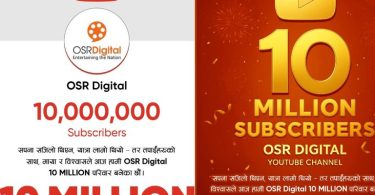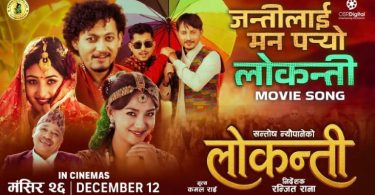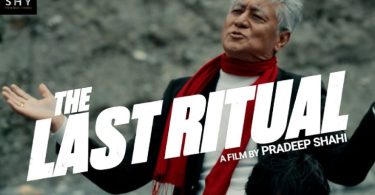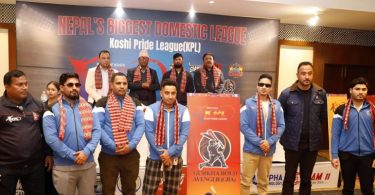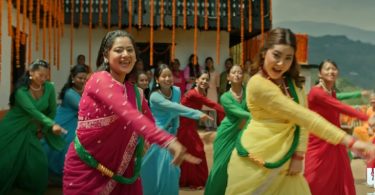Phurba Sherpa
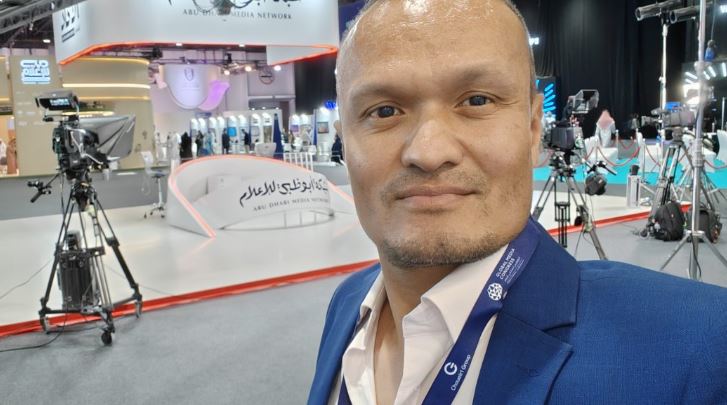
Recently, I had the privilege to attend the Global Media Congress in Abu Dhabi. Building on the success of last year’s inaugural edition, the three-day event saw the participation of some of the world’s top industry leaders, specialists, and influencers, in addition to academics, youth, and university students.
With the theme ‘Shaping the Future of the Media Industry,’ this year’s Global Media Congress addressed critical themes, aligning with global concerns. This is was wonderful opportunity, and I was really lucky to be invited to attend the event as a delegate.
The first edition was quite good but this year’s edition exceeded my expectations in terms of size and scale. It boasted an impressive turnout with approximately 13,000 delegates and over 23,000 attendees.

The Global Media Congress featured 257 exhibiting brands, drew participation from 172 countries, and showcased the insights of 160 globally renowned speakers. In addition to these impressive numbers, there were seven main feature areas, contributing to the overall grandeur of the occasion.
What struck me even more was the extensive program, consisting of 36 main sessions that delved into a wide range of topics. These sessions covered diverse subjects such as sustainability, innovation, cutting-edge media technologies, sports media, youth engagement, and the pivotal role of training and development in shaping the future of the media industry. The event, with its promise of in-depth exploration and discourse, truly felt like a colossal gathering, surpassing the already impressive statistics provided.
Global Media Congress
Additionally, the Global Media Congress introduced multiple platforms, including the education stage, co-production majlis, innovation stage, NextTech, and future media lab, all designed to investigate the convergence of media, education, and artificial intelligence.
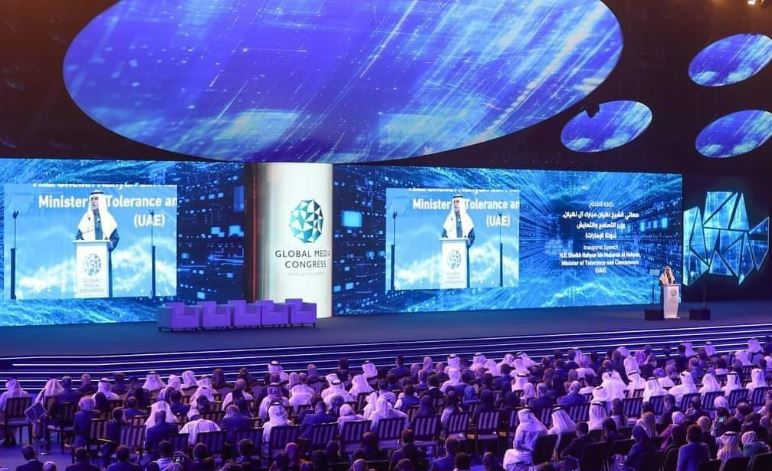
Essentially, the Global Media Congress was a traditional conference and trade fair in one. At the venue, the Abu Dhabi National Exhibition Centre, there was a large auditorium that hosted plenary sessions. Then, directly beside this, there was the main exhibition floor with all kinds of TV channels, news agencies, think tanks, and other media-related businesses. I spent a lot of time going around the room and introducing myself to the various exhibitors. I made some really useful connections and met some lovely people while doing so.
One of the many highlights was seeing Sky News Arabia in action; this is one of my favourite Arabic news channels, and they had a dedicated mini studio at the event, along with roving reporters and the ‘Sky News Academy’, which is a training centre for Arabic-speaking journalists.
I was lucky enough to attend a workshop on body language and communication in TV news. There was also a ‘conference within a conference’ in a special, box-like space on the main exhibition floor, which was called the ‘Media Future Labs’.
Global Media Congress
The inaugural Global Media Congress was very well organised and run. The event was inaugurated by Sheikh Mansour Bin Zayed Al Nahyan, Vice President, Deputy Prime Minister, and Chairman of the Presidential Court.
Various tours and activities were organised for the attendees, including visits to the Sheikh Zayed Grand Mosque, which is one of the main sights in Abu Dhabi. While I had been to Abu Dhabi before and had visited the mosque by day, this was my first time visiting the mosque at night, and it was truly magnificent.
One thing that was noticeable about the Global Media Congress was that the foreign attendees were mainly from non-Western countries. I had a good chat with exhibitors from Uzbekistan and Tajikistan, for example.
There was also a big contingent from RT Arabic present as well. From the West, I noticed Euronews, France 24, CNN, BBC, and National Geographic, etc. And we could also see the presence of the media from China’s CCTV and CGTN. Additionally, Viory, the video news agency, entered into a content licensing partnership with CCTV, allowing Viory clients access to CCTV’s content. The agency also became a member of AUB (African Union of Broadcasting), committing to the training of media professionals and content contributions to the AUBvision platform.
I highly recommend attending future events for anyone with an interest in the media industry. My sincere gratitude goes out to all those who worked tirelessly to ensure the event’s seamless execution and, in turn, made my attendance possible. The smooth orchestration of the event reflects the dedication and effort of the organisers and contributors, enhancing the overall experience for attendees.


